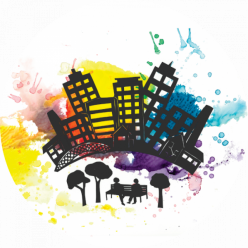“In the process of conversation, change happens”
— Jones
Editor’s Note: In this blog, "Jones" discusses the transformative potential of Transforming Stories and advises other Hamilton community members why they should participate. Jones is a community performer on Transforming stories.
Have you seen any changes come about from the transforming stories pilot?
I would like to think am a very good observer. That’s my secret. I observe things. And I have observed some changes in the community. The last time we came together I had to say, “Guess what? You know things are happening! And they asked, “What do you mean?” So I said, “Such and such agency have changed their policy and then another agency did the same thing. And some other agencies are doing the same thing. I don’t know for sure but we could be having some impact!” And it’s not just one agency. It couldn’t be just coincidence.
One person that could affect change attended almost every performance we did. She even knew when we changed some aspect of the skit. Sometimes we did a little tweak and sometimes I wondered if I should tell her what we did. And I thought, no I think she knows it. I don’t have to tell her anything. And she was like, “Oh, you guys changed skit up a little bit.” So, she was paying attention. From her agency there were some changes that were implemented. Which showed in my opinion that if you talk with people, and you have discussions, not telling them, not yelling at them, not blaming them, but have discussions change can happen. Transforming Stories is about discussing the problem. It’s a conversational piece. But in the process of conversation, change happens.
What about you? How has Transforming Stories changed you?
I think it gave me a voice, in an area I didn’t think it would. So, we’ve done talks, workshops, and interviews, which were all valuable. We’ve gone to some social work classes and some other community events. We have given some community talks and presentations. We’ve talked about the committee and what we do.
In going through all these stuff, it can be traumatizing. But I found conversing about these issues in this format, it was therapeutic, even though it was nerve-racking going up on stage and bearing it all. I am not very good at — one-on-one is great. Public? Oi! It’s nerve-racking! And I’ve gotten so many complements from people, including, the director. She said, “You’re really good at this. You are a natural.” And I say, “Mm-mm! You have no idea. I couldn’t sleep at night. I kept on thinking about this stuff. I was this nervous wreck!” And she says, “Girl, I didn’t see one hint of nerves.” And I will say, “Really?” So, I think something came out of this whole thing, which I didn’t even know I had. I began to speak and converse in a way. And my voice was heard. They were things that I want to say that I did not get to say at all. Or not allowed to say. Or I thought about it but didn’t say anything, but put on a smile. But I got to say some of those things. And I have more, trust me I’ve more stories to tell.
What advice would you tell a community participant who wishes to participate in Transforming Stories?
Advice number one, I would tell them to attend one of our performances. Most times they are free to attend. See what we are doing, and come chat with us. We look scary, but we are not scary. We are the most soft, shy, reserved women that you will ever come across. You know?
And I would encourage people to jump in. It’s not as scary as it seems. If you don’t feel that you have the guts to do the performing, sit around and watch the people that perform. You will learn so much. Because we still struggle with talking about this difficult stuff. And sometimes people feel or say that, “I don’t want my story to be out there.” Well these stories are a combination of people stories, it is not just one particular person’s story. My character’s stories are things that I’ve heard from friends, some have happened to me, some I have witnessed, Like taking someone to a place to get services and you hear some of these things being said.
And it’s good, because you get to say what you really want to say. And the people behind the desk get to hear what you really have to say without it being directed at them. Because they are human beings as well.
So, I say to people, just come. Attend performances. Join. And see where this can take you, because you would be surprised how much impact you can have for yourself and your community. It’s going to be the best thing ever, because you become part of the solution.

